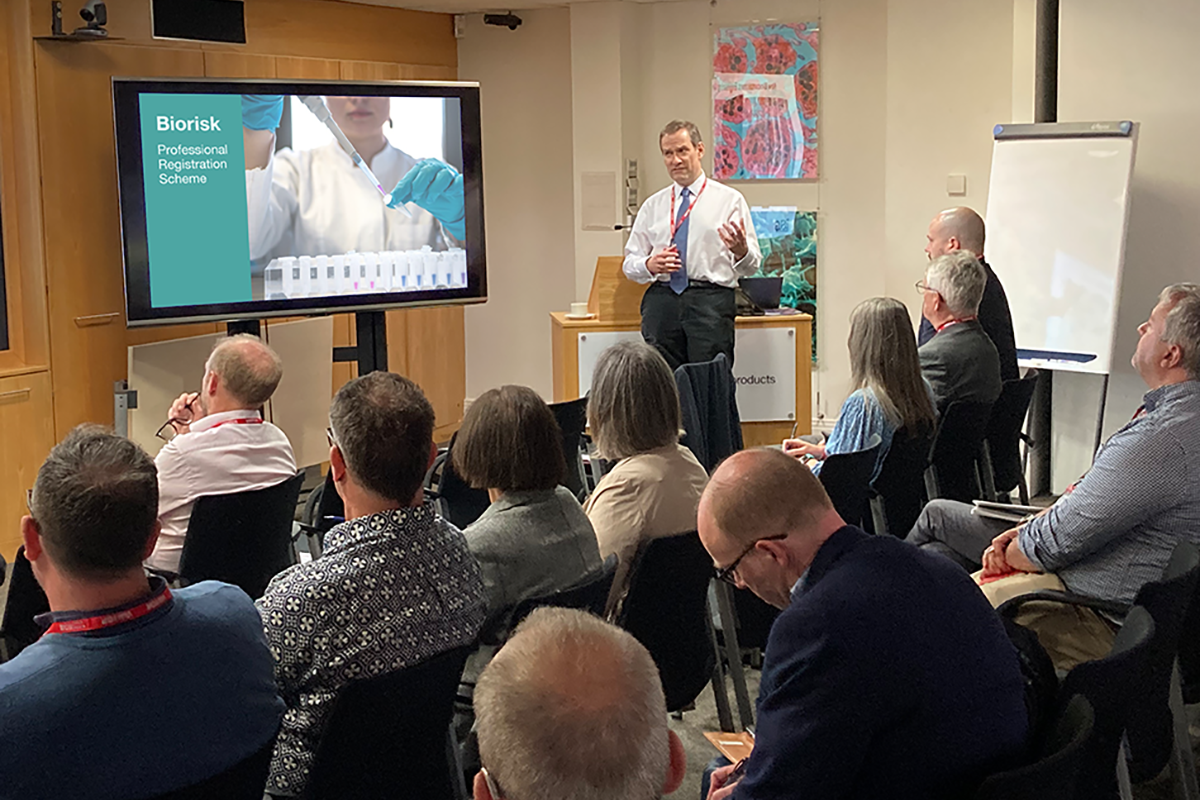A new professional registration scheme for biorisk specialists has been launched in the UK.
The programme will allow practitioners to benchmark their competence, develop professional skills and share learning.
The Biorisk Professional Registration Scheme (BPRS) from the Royal Society of Biology (RSB) has been developed in conjunction with the Biorisk Strategic Leadership Group (BSLG).
Established in 2017 and co-ordinated by The Pirbright Institute, BSLG brings together the UK’s High Hazard Biological facilities and representatives of other key stakeholders across the whole of the bio economy.
Registration will cover a wide range of job roles including Biological Safety and BioRisk Officer, Adviser or Manager across a wide range of organisations – from universities, research institutes and government establishments to NHS pathology, biotechnology, and pharmaceutical laboratories.
Professor Bryan Charleston, Director of The Pirbright Institute, said: “When the BSLG was first established, one of the biggest challenges identified in the sector was the inconsistency in approach to formal training and a lack of professional status for key members of staff, for example, Biological Safety Officers. Indeed, globally there are similar shortages of available specialist training. We are delighted RSB and BSLG are launching this eagerly anticipated UK-wide scheme. Establishing professional registration across a wide range of biosafety facilities will drive up standards and deliver consistency in biorisk management across the bioeconomy sector.”
The programme has been developed over several years, with input from a very wide range of biorisk expertise and sector leaders.
BSLG members include the UK’s main high containment facilities, several leading UK universities and research institutes, NHS England and industry partners.
Dr Mark Downs, Chief Executive of the RSB, said: “We are delighted to launch a robust, credible and recognised benchmark of biorisk practitioner competency. Sponsored and supported by the major organisations within the bioeconomy sector, it is underpinned through a searchable online register maintained by us at the RSB.”
Dr Surrinder Johal, Director of Safety at Imperial College London, also addressed delegates at the launch event in Hertfordshire.
“BPRS is a much-needed marker for university biorisk professionals. Not only does it directly benefit registrants by extending their knowledge, but it also allows them to demonstrate defined, recognised and maintained (via CPD) skills and competence to peers, employers, clients, and stakeholders.”
The scheme offers two professional registration levels to anyone acting as a biorisk practitioner providing advice, support or oversight on the management, control, or containment of biological risk.
The Registered Biorisk Adviser (RBA) pathway is intended for new biorisk practitioners, whilst the advanced Registered Biorisk Specialist (RBS) is aimed at specialists who need a higher level of recognised competence. Both routes should facilitate progression, unlock career opportunities, and equip UK biorisk professionals with the right knowledge and skills.
Biorisk professionals who require further information about the scheme can visit the RSB webpage or email registers@rsb.org.uk for further information.

